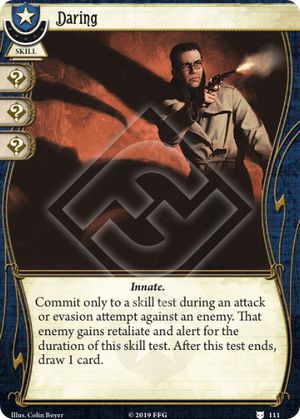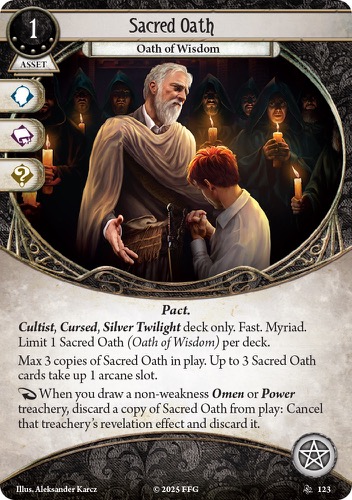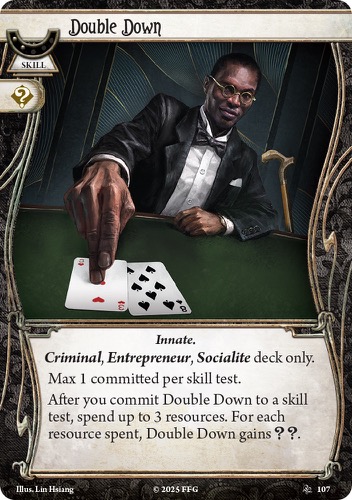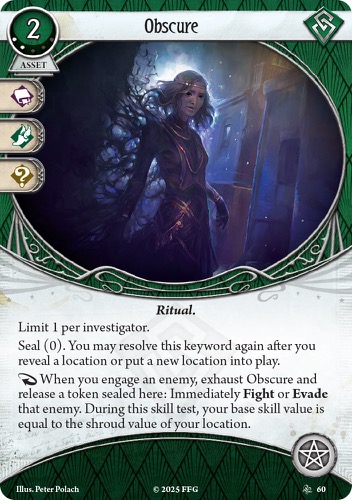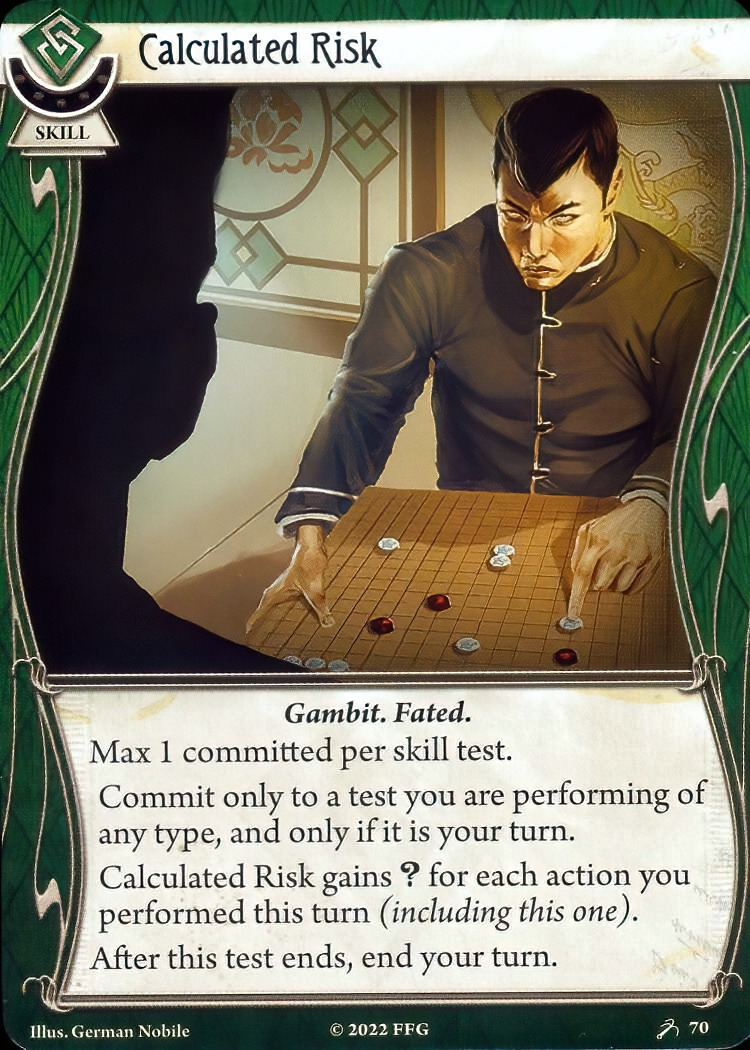
It's been a while since this card as released. After more varied play, how does this stack up?
On the whole, very well. It's not only the oversuccess portion of rogue that likes this, though it certainly doesn't hurt. The fact is, this is a single skill that can add +3 to any test - and sometimes there are some tests that rogues really need to succeed on that aren't in their strengths. In low player count rogues or when only dealing with the single character, there are things like Frozen in Fear which require you to succeed on a check that you wouldn't ever succeed on. There are also scenarios that often require you to make a specific type of check. At that point, you can usually set up the timing as you'd like and use this to finish off that check - and if you happen to be using any source of bonus actions, such as Leo De Luca or Quick Thinking along the way, all the better.
I've found this to be an excellent skill to throw in most decks which have a single low stat that can come up - and it turns out, rogues, and their generally low , can usually benefit from such an effect. This won't protect you when an effect immediately pops up, but it's a good emergency measure to have - and even if you don't need it, most games, there are times where I'm happy to arrange for a +3 on my last action.
Just don't use this in the same deck as Daredevil unless you're willing to tempt catastrophe.
